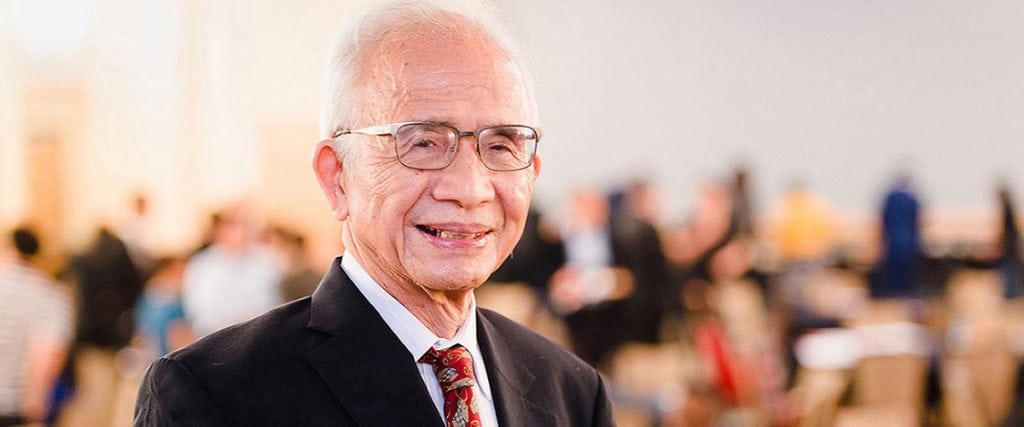3D Printing Research, Success Without Passion, and More – New York News

Let’s explore some of the most interesting stories that have emerged from New York business schools this week.
Award-Winning Paper Explores How Designers Innovate in 3D Printing Communities – Stevens Institute of Technology SOB News
In a new paper from Gaurav Sabnis, Stevens Institute of Technology School of Business Assistant Professor of Marketing, Associate Dean of Research Dr. Jeffrey Nickerson, and the University of Navarra’s Dr. Harris Kyriakou “examines knowledge reuse in 3D printing communities [where] makers often iterate on designs created by other users to create refined products.”
According to the Stevens Institute of Technology SOB News article, “the professors looked at frequently reused designs and found a few clear signals in what helps designs get shared—from a designer’s level of experience, to the amount of information she included about her designs.”
The trio’s research is among the first to properly survey 3D printing communities and it could have only happened in the interdisciplinary incubator that is Stevens. Dr. Sabnis writes, “Stevens has a great culture that leads to more interdisciplinary research. I’m excited to do the kinds of research that creates real-world solutions for businesses in the digital age.”
You can read more about the 3D printing research from Stevens here.
Reviving Grit: Columbia Business School Study Finds That In Pursuit of Success, Dedication Falls Short Without Passion – Columbia Business School News
In a new PNAS study, Columbia Business School and Frankfurt School of Finance & Management researchers found that grit “without the clear sense of direction that passion provides does not propel people forward.”
Columbia Professor and co-author Adam Galinsky writes, “We were not surprised to find that dogged dedication to an objective – without a true passion for the goal – is mere drudgery.”
“But until now, research on grit failed to factor in the propulsive force that animated grit’s perseverance. By properly incorporating passion into the grit equation, we now have evidence that people who are passionate for their goal and persevere towards it will reach higher heights.”
You can find Why Grit Requires Perseverance and Passion to Positively Predict Performance here, and discover more fro the Columbia Business School News article here.
Where Professors Share Knowledge on Issues in Finance, Economics and Accounting – Rutgers Business School News
The Livingston Student Center recently hosted the annual Conference on Pacific Basin Finance, Economics, Accounting, and Management, which was founded by Rutgers Business School Distinguished Professor of Finance and Economics Cheng-Few Lee at the business school in 1992.

Rutgers Business School Distinguished Professor of Finance and Economics Cheng-Few Lee / Photo via business.rutgers.edu
The conference assembles “finance professors from around the world” to absorb “research on a variety of issues, from financial applications of parallel processing to the ethics of cryptocurrency.”
According to the Rutgers Business School News article, “Many of the conference speakers were Professor Lee’s former colleagues or students, including professor Yong Shi, who is one of 13 advisors to China’s premier, [and] delivered a keynote address on big Data Mining and Knowledge Management.”
You can read more about the event here.
The Case for Business Curiosity from Harvard, and More – Boston News

Let’s explore some of the most interesting stories that have emerged from Boston business schools this week.
The Business Case for Curiosity – Harvard Business Review
Harvard Business School Professor of Business Administration and Behavioral Scientist Francesca Gino recently published an article in the Harvard Business Review in which she elaborated on the “benefits of and common barriers to curiosity in the workplace.”
Professor Gino points to research, which offers “three important insights about curiosity as it relates to business”
- Curiosity is essential to the performance of an enterprise, leading to “fewer decision-making errors, more innovation, reduced group conflict, and more-open communication and better team performance.”
- By “making small changes” to organization and management, leaders can do more to encourage their employees’ curiosity
- Leaders fear curiosity “will increase risk and inefficiency.”
To address these three insights, Professor Gino offered “five strategies that can help leaders get high returns on investments in employees’ curiosity and in their own”:
- Hire for curiosity.
- Model inquisitiveness.
- Emphasize learning goals.
- Let employees explore and broaden their interests.
- Have “Why?” “What if…?” and “How might we…?” days.
She concludes, “Maintaining a sense of wonder is crucial to creativity and innovation. The most effective leaders look for ways to nurture their employees’ curiosity to fuel learning and discovery.”
You can read more about the business curiosity research here.
Occasional Breaks Can Make Groups Smarter – Questrom School of Business News
BU Questrom’s Jesse Shore recently co-authored new PNAS research, which finds that scientists who integrate “short breaks into problem-solving sessions improves both the average performance of the group and increases the likelihood of getting the best solution.”
The study, which was co-authored by Harvard’s Ethan Bernstein and David Lazer, has “implications for the way we use always-on collaboration software, such as Slack and Google Docs.”
Shore explains, “In many of these [collaborative software tools], the goal seems to be to keep people constantly aware of what others are doing. But the reality is that if you’re getting an alert every time something happens and you’re not taking the time to work separately and have your own independent thoughts, it may hurt the group’s overall ability to solve complex problems.”
You can find the full article here.
Sound Advice: Marketing Students Help Sonos Better Understand Its Customers – Suffolk Experience
The Suffolk Experience recently highlighted Sawyer Business School marketing research collaboration with Sonos, a “go-to source for high-quality home sound systems” that just so happens to be within walking distance of campus.
To accommodate the prediction that over “50 percent of all searches worldwide will be done by voice within four years,” Sonos had thrown its hat in the voice-assistance ring with Apple’s HomePad, Amazon Echo, and Google Home. The company reached out to Sawyer to better understand how late millennial 18-to-24-year-old consumers interact with voice-assistant speakers.
Sonos Consumer Insights Manager Dennis Brosnan writes, “Sonos likes working with Sawyer Business School students because the analysis and recommendations they present are often different than the approach we would take.”
You can read more about the Sonos research here.
